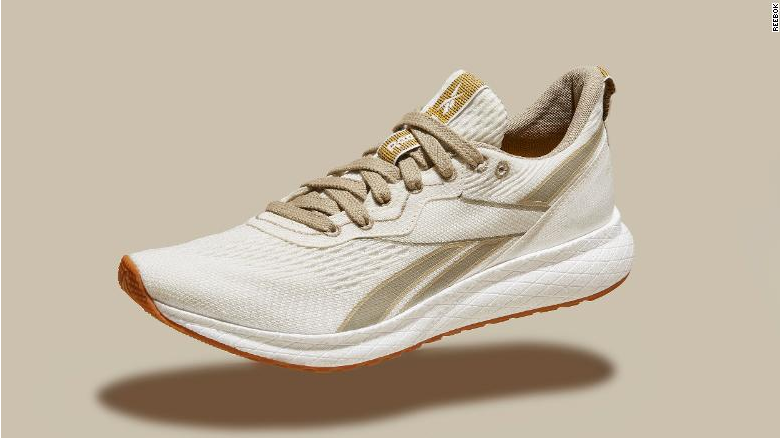Eco-friendly meatless food products shook up the fast-food industry in 2019. Experts say 2020’s game-changing trend in sustainable consumer goods may be plant-based (or “vegan”) athletic shoes.
Last week, Reebok, owned by Adidas since 2005, unveiled the design for its first plant-based running shoe, the Floatride GROW, which is expected to hit store shelves next fall.
The upper part of the shoe is made primarily from eucalyptus. Its soles are made from castor beans and natural rubber. The scheduled debut comes two years after Reebok started selling a “vegan” version of its famed Newport (NP) Classic shoes made with cotton and corn. The more sustainable version of the NP Classics are “lifestyle” footwear not designed for athletic performance.
RELATED STORY:
In contrast, Reebok brand president Matt O’Toole says the Floatride GROW is sturdy enough to handle the wear and tear from intense and constant use by athletes. He told CNN Business:
“One of the challenges for the innovations team was [the Floatride GROW] had to be equal to or better to the vegan NP Classics. We actually have our own testing machines. The shoe holds up just as well as our other [athletic] shoes.”
Each year, Americans throw away some 300 million pairs of shoes, which the EPA says, along with discarded clothes, accounted for roughly 8.9 million tons — about 17.6% — of the 50.7 million tons of discarded trash that filled American landfills in 2017.
Most shoe waste is comprised of non-biodegradable plastic, leather and petroleum-based rubber, materials that take an average of 25 to 80 years to decompose naturally.
In 2017, the global market for athletic footwear reached an estimated $64.3 billion. A 2019 “future of footwear” study commissioned by the market research firm NPD found that millennials and Generation Z, the primary consumers of athletic footwear, are “very concerned” about the environment. NPD senior sports industry advisor Matt Powell told CNN Business:
“Our survey shows that consumers were concerned about where their shoes were made and whether or not they were made ethically. About 35% of respondents said they would be willing to pay more for a shoe sustainability made. While it isn’t the entire market, that’s certainly a category for growth.”
Nike dipped its toe in the plant-based, athletic shoe waters a few months ago, with the limited release of a “100% organic” custom Nike Air Max 90. The industry leader in athletic footwear partnered with environmentally-conscious, UK streetwear brand Maharishi to create and raffle off pairs of its own “vegan” shoe in August for $150 a pair. The shoes have been re-sold for as much as $1,446 per pair on second-hand retail sites.
RELATED STORY:
Nike says sustainability has been at the core of its business for decades, but noted that recent research about climate change has compelled the company to change the way it makes and sells its shoes.
In 2015 and 2016, Greenpeace criticized Nike and a few other companies for failing to eliminate their use of perfluorinated chemicals (PFCs), which protect products from corrosion, but also make them more harmful to the environment.
In August, Puma, Nike, and Adidas joined 30 other apparel companies as signatories on the G7 Fashion Pact introduced at the annual G7 Summit. Nike has also pledged to reduce its carbon footprint by 30% by 2030 through its partnership with the UN Framework Convention on Climate Change. A Nike spokesperson said:
“We exist to serve athletes. … We know that if there is no planet there is no sport. Advancing a more sustainable future requires companies of all sizes to think holistically, innovate solutions and adopt the principles of circularity.”












